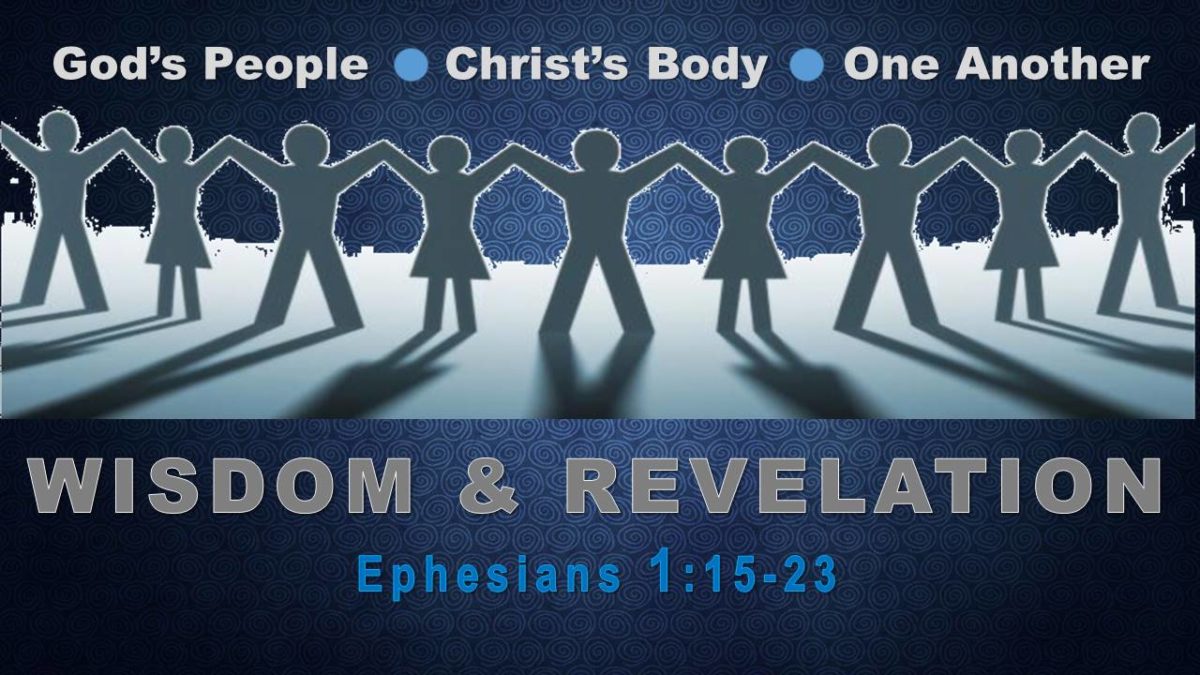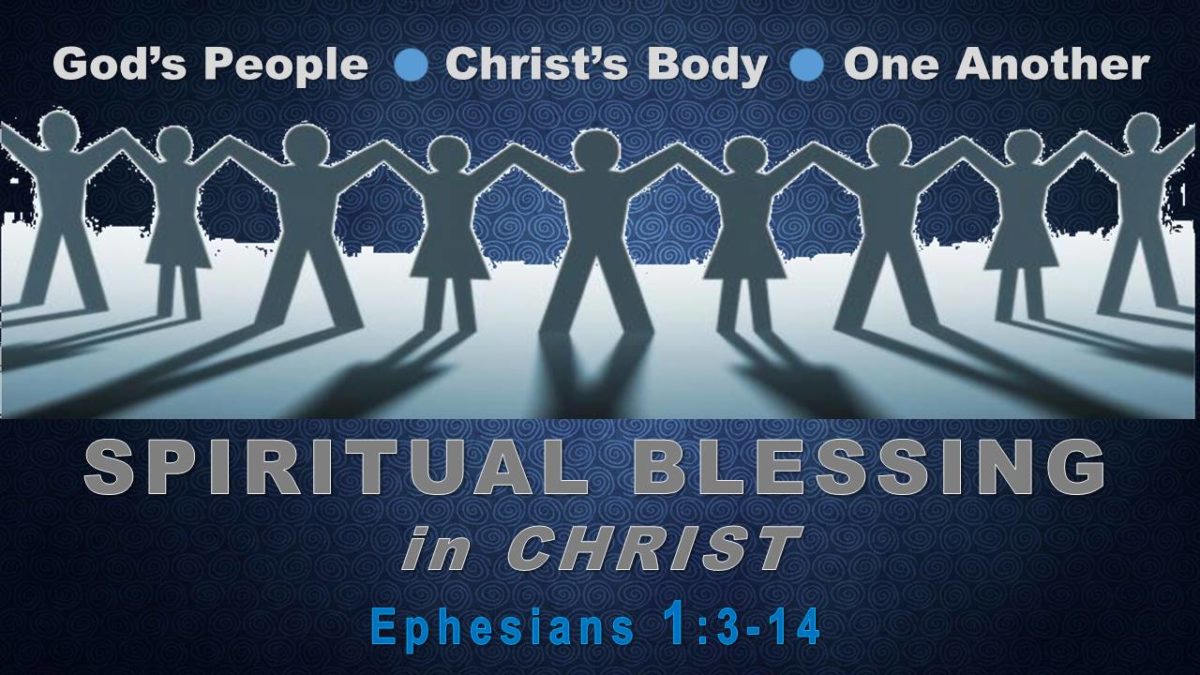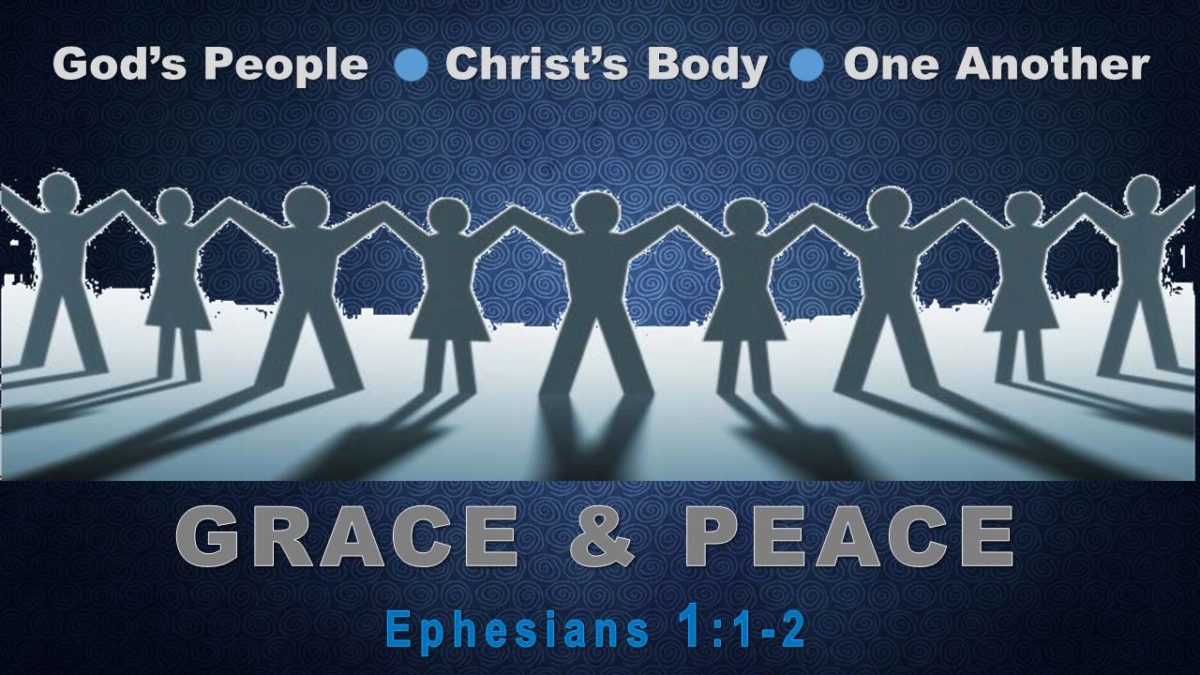Some time ago I found myself in a four-day-long meeting of ministry leaders in suburban Chicago. That’s not the cool downtown area; that’s the part that’s like suburban Dallas, Atlanta or Houston. You can sit in traffic in any of those places.
On about the third day, as I sat soaking in the dopamine of the florescent lights, I received a texted picture from my wife and three-year-old daughter. They were on the beach, soaking in the sun, and without me!
What do I really want? I asked myself. How can I change things, so that next year I am with them, which is far better?
That’s not a bad question to ask ourselves as we gather with our church families this Sunday. What do we want and expect from the Christian life? And, what do we want for each other? And, how are we praying for one another to that end?
After greeting his Ephesian recipients, and offering praise to God for all the spiritual blessings we have in Christ, Paul gives thanksgiving for his Ephesian brothers and informs them of the content of his prayers for them.
Ephesians 1.15-23 is a good passage to guide us in our prayers for one another. Here’s a few takeaways to guide us toward that end:
Don’t cease to pray for one another (:15-16a). This is Paul’s offer of thanksgiving for them, and there’s tension here. Having really trusted in Christ ( … I’ve heard of your faith … your love toward all the saints), they now need Paul to intercede for them. Apparently, there’s more in the Christian life that they might not get; there’s a present struggle, an outcome that’s not yet decided. There’s tension here.
Pray that we would each know God, as He’s revealed in Jesus (:16b-18a). This is the content of Paul’s prayer. The core idea is found in verse 17, … making remembrance at the time of my prayers, so that God may give to you the Spirit of wisdom and revelation in the knowledge of Him …
“Spirit” is the Holy Spirit, who has sealed them at the time of their faith in Christ. He already indwells them. What Paul is praying for is specific manifestations of characteristic qualities of the Spirit’s work to be known increasingly in the lives of the Ephesians. What are these?
“Wisdom,” for one. When used to describe an art, like carpentry, wisdom describes an unusual ability in practical skill. But, when describing the intellect, wisdom describes the ability to discern the true nature of things. Wisdom from the Spirit shows us what God is all about in our lives.
“Revelation,” for another. This word describes what is unveiled or disclosed having been previously hidden. Revelation operates in the knowledge of Him (:17) and helps believers discern the Spirit’s work, especially since the Ephesians have had the “eyes of their hearts enlightened” (:18).
It’s like Paul is saying to the Ephesians: “When you trusted Christ and were sealed by the Spirit you saw life in a totally new way. You saw into the nature of spiritual things. You knew the difference between right and wrong. You had a conscience before God. You began to learn God’s will. Now, I’m praying MORE of that discernment for you, so that you can know God better!
Are we praying this for one another? Are we praying that God will use the events of our lives to help us know Him better?
Pray that we would each know God’s hope, God’s riches and God’s power (:18b-23). This is Paul’s purpose for his prayer, the result of wisdom and revelation.
He wants them to know the hope of his calling. God’s calling took place in the past, and understanding this results in hope. He wants them to know the riches of his glorious inheritance in the saints. This is Christ’s inheritance, earned at the cross, but not yet possessed by Jesus in the fullest sense. Understanding that we share in the possession earned by our big brother, Jesus, and have this in store for us likewise brings us security in our relationship with God.
And, Paul wants us to know … the immeasurable greatness of his power toward us who believe, according to the working of his great might (:19).
There’s four words for “power” here, translated “power” (potential power); “working” (power in operation); “might” (dominion); and, “great” (power that can be expressed).
This reminds me of the tiger I once saw at the Henry Doorley Zoo in Omaha. Standing two feet away from the great beast (on the other side of the glass, of course), I sensed the potential power of the great cat, who paced back and forth restlessly. I shuddered at the thought of his active power that might be displayed, if ever I stepped on the other side of the glass. I recognized his majesty of the domain that included everything in the area, exception the zookeeper, I suppose. And, I recognized the transitive nature of the power that could be expressed (thus, the glass).
Verses 20-23 give us three examples of God’s power in action. First, God raised Jesus from the dead (:20). This took Jesus from being dead to the right hand of the Father … far above all rule and authority and power and dominion … (:21) Second, God put all things under the feet of Christ. This is dueling language that describes the victor who has his enemy under his foot and is yet to make the fatal sword plunge. And, finally, God gave Jesus to the Church to be its head. In many ways, verse 22b introduces the rest of the letter. The power of God in the life of the believer is not the power to change circumstances, but the power for a changed life!
So, what should be our prayer for one another, in light of God’s spiritual blessing?
Paul guides us here: Our prayer for one another should be that each would know God (personally … increasingly … intimately), as God has revealed Himself in Christ.
Here’s a few questions to help us think more about the Wisdom and Revelation from God that we must desire for one another:
What is your impression of this passage? What about it is still unclear or requires more explanation?
When you pray for another believer, how do you usually pray? Do you pray only the problems would be solved and circumstances addressed? Or, do you pray that your fellow believer might really know God, in the midst of circumstances?
What do you think about the suggestion that the Ephesians (and, us!) only MIGHT receive this enabling form the Spirit? Is there potential power from God that we sometimes don’t receive?
Where do you need to see the power of God in your life? (We remember here that this is the power to know God in Christ and to see our lives change).



